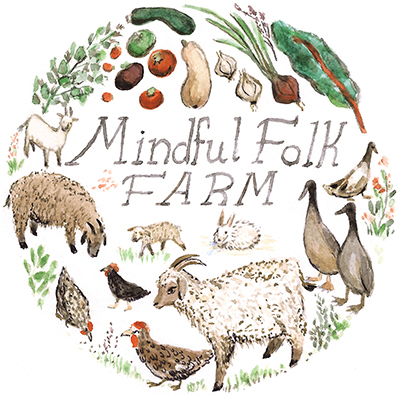The duck side.
Have you ever tried duck eggs? I think, for the most part, people either love them, as I do, or they really, really don't. However, the sad thing is that many of the folks I talk to that claim not to like them have only ever had them prepared once, and chances are, they were on the runny side of fried or scrambled. Duck eggs are so much more than a breakfast food! I encourage you to try them, and not just for their myriad health benefits.
Our journey with ducks began seven years ago when we needed a solution to our snail problem. Snails are one of the primary hosts of coccidia, which is a parasite that can take down a flock of sheep or herd of goats in the blink of an eye. Chickens will not eat snails, so, ducks to the rescue! But, what to do with all the eggs?!? In my recovery from Lyme disease, my acupuncturist helped me to see how valuable they really were. Here are some nutritional facts:
Duck eggs are especially high in vitamin B12, which is required for the synthesis of DNA and the health of your red blood cells. B12 is also very important for your nervous system; low levels of this particular vitamin can cause issues with balance and memory, as well as fatigue. One duck egg gives you about 60% of your daily value of B12 - that's more than five times that of a chicken egg!
Each duck egg contains more than 1/3 of your daily value for Selenium; also required for the synthesis and repair of DNA. Selenium also helps regulate metabolic hormones and plays a role in fertility and helping to ensure healthy pregnancies.
Choline is an essential nutrient that helps your cells communicate. It's particularly useful in helping your body create neurotransmitters and facilitates nerve communication throughout your body.
According to a 2015 study in the Journal of Agricultural and Food Chemistry, peptides in the whites of duck eggs can promote and enhance the body's ability to absorb the essential mineral calcium in your digestive system. This is important since calcium helps your body's muscles function properly and maintains the health of your bones and teeth.
Duck eggs are also rich in antioxidants. According to a 2014 study in the Biochemical and Biophysical Research Communications Journal, the egg whites of duck eggs contain different antioxidants that can potentially help prevent various diseases, including heart disease and neurodegenerative conditions.
There is twice the amount of iron in a duck egg than in a chicken egg! And that's not just because the eggs are bigger.
* Info courtesy of the Livestrong Foundation
You can pretty much do anything with a duck egg that you can with a chicken egg. In addition to eating them straight up, they are very popular with bakers because they have a higher ratio of egg yokes to egg whites. The larger amount of yoke makes baked goods richer and gives cakes a fluffier consistency.
Throughout the next few blog posts, I will be highlighting various recipes using duck eggs. My hopes are that you will learn to love them as much as I, or perhaps find some new favorite recipes utilizing this amazing ingredient!
With gratitude,
Hannah

